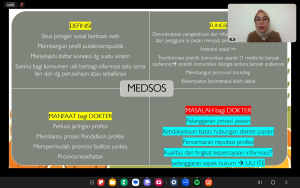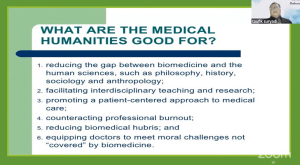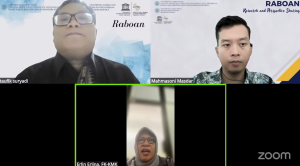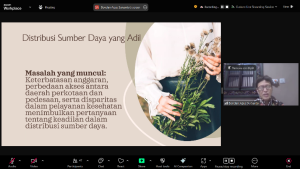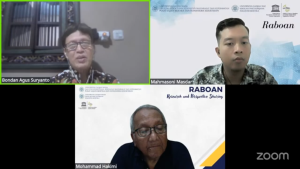SIAP PEDULI: Strengthening Family Readiness in Chronic and Palliative Care

Caring for a family member living with a chronic or palliative condition often places a significant emotional, physical, and social burden on families. Beyond understanding medical conditions, families are expected to provide continuous emotional support while ensuring that patients can continue to live meaningful daily lives. Unfortunately, limited access to information and practical skills often leaves families feeling unprepared and overwhelmed. This reality highlights the importance of educational and empowerment initiatives that enable families to become confident and capable primary caregivers.
In response to this need, the Master’s Program in Bioethics, Graduate School of Universitas Gadjah Mada, in collaboration with the Center for Bioethics and Medical Humanities (CBMH) as part of the UNESCO Chair on Bioethics, organized a community engagement program entitled “SIAP PEDULI (Family Readiness Socialization for Chronic and Palliative Care)”. The activity was conducted on 25–26 August 2025 at RW 10 Community Hall, Bangunrejo, Kricak Village, Yogyakarta, and was attended by 50 participants, consisting of community health cadres and family representatives caring for palliative patients.
The SIAP PEDULI program focused on providing practical and applicable knowledge that families and community members can directly implement in daily care. Key sessions included Education on the Role and Benefits of Indonesia’s National Health Insurance (BPJS Kesehatan) in Palliative Care, delivered by dr. Sumono Nurbadi Putranto; Hands-on Practice Using the PEKA Palliative Care Handbook, facilitated by Dr. Dra. Retna Siwi Padmawati, M.A.; and Activity and Mobilization Care Practice, guided by drg. Agnes Bhakti Pratiwi, M.P.H., Ph.D. together with Ardhini N., M.K.M. These sessions were designed to enhance families’ confidence in managing both the administrative and practical aspects of patient care.
Through SIAP PEDULI, families are expected to gain not only a better understanding of medical and healthcare system navigation, but also practical caregiving skills that support patients’ daily needs. The program also emphasized the importance of collaboration between families, community cadres, and healthcare professionals in delivering inclusive, continuous, and compassionate care for patients with chronic and life-limiting conditions.
This initiative aligns with the commitment of UGM and the UNESCO Chair on Bioethics to advancing the Sustainable Development Goals (SDGs), particularly SDG 3 (Good Health and Well-being) through strengthened family-based care capacity, and SDG 17 (Partnerships for the Goals) by fostering synergy between academia, healthcare providers, and local communities. Through this collaborative approach, SIAP PEDULI serves not only as an educational program but also as a social movement contributing to improved quality of life for chronic and palliative patients within the community.
Editor : Rafi









